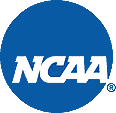With NCAA Selection Sunday just under two weeks away and most conference tournament pairings set, the Bracketology picture is now a lot clearer than a week ago. In particular, the race for No. 8 in the USCHO.com Pairwise Rankings (PWR), recently too complicated to analyze, is down to two teams — Harvard and Boston College. This column will examine this key pairwise comparison and more.
What is the current bracket projection?
The most likely projection right now is as follows:

Mercyhurst at No. 1 New Hampshire
Princeton at Minnesota
Boston College at Wisconsin
Minnesota-Duluth at No. 2 St. Lawrence
This is the projection that does the best job of avoiding intraconference matchups, at the expense of bracket integrity. This is a necessary tradeoff.
One issue with this bracket is that New Hampshire has a significantly tougher matchup with Mercyhurst than Wisconsin has with Boston College. But since the teams are only separated by one place in the PWR, I believe it is a reasonable swap.
The other problem is that St. Lawrence is paired with UMD, No. 5 in the PWR. However, UMD’s numbers are fairly comparable with Princeton and Mercyhurst’s (all three teams are even in their comparisons). In addition, UMD is clearly the team among the three struggling the most down the stretch, so I don’t see any reason for the committee to object to this pairing.
But if UMD comes back with a strong WCHA tournament, the committee might be failing to protect the Saints adequately by pairing them with the Bulldogs or Gophers. In such a case, the committee may decide that the expense of bracket intergrity is too much to avoid intraconference matchups. If so, then SLU would get Boston College, Wisconsin would get Princeton, and Minnesota would face UMD in the first round.
What’s new in the race for No. 1, No. 2, and No. 3?
New Hampshire should have any comparison with Wisconsin locked up. The Wildcats have the head-to-head and the Last 16 games criteria locked up. At best, Wisconsin can only even up UNH in record against teams under consideration and pass UNH in Ratings Percentage Index (RPI).
St. Lawrence can pass New Hampshire if the Wildcats do not win Hockey East and the Saints go undefeated in winning the ECACHL.
A St. Lawrence sweep of Yale should just about wrap up the Saints’ comparison with Wisconsin. The only potential downfall for the Saints is if they draw Dartmouth in the ECACHL semifinals and lose, since Dartmouth is a common opponent with Wisconsin.
How about the race for home ice?
Princeton, Minnesota, and Minnesota-Duluth are the contenders. Minnesota or UMD clearly get home ice by winning the WCHA tournament.
Other scenarios are too close to call. If Princeton goes undefeated in the ECACHL tournament, and Minnesota goes undefeated until losing the WCHA final, then Princeton and Minnesota’s RPI will be neck-and-neck. (Princeton would have a 2-1 edge in the other criteria).
If UMD, Minnesota, and Princeton all sweep their conference quarterfinal series, UMD beats Minnesota in the WCHA semifinals and loses to Wisconsin in the WCHA final, and Princeton loses in the ECACHL final to St. Lawrence, then UMD, Minnesota, and Princeton would all be neck-and-neck in RPI. (Again, Princeton would have 2-1 edge in the other criteria over both WCHA schools).
If UMD, Minnesota, or Princeton slip up in their quarterfinal series, this column will investigate the implications next week.
How about the race for No. 8 in the PWR?
First, the usual disclaimer — No. 8 in the PWR (excluding ineligible Clarkson) is only relevant if the three NCAA autobids all go to teams in the top seven of the rankings.
The race for that spot is down to two teams — Harvard and Boston College. No one else outside of the current PWR top seven can pass BC without winning an autobid.
The way the Harvard-BC comparison breaks down, BC has the clear edge in head-to-head and Last 16 games, Harvard has a smaller edge in common opponents and record against teams under consideration. So the comparison should come down to RPI. If the teams’ RPIs are too close (within .005, less than a half a win), my intuition is that the committee would go with BC.
If Harvard does not win its ECACHL quarterfinal series, the spot belongs to BC.
If BC advances to the Hockey East final and loses to UNH, then Harvard needs to sweep Clarkson and reach the ECACHL final for a firm hold of the eighth spot. If Harvard needs three games to beat Clarkson and reaches the ECACHL final, the Crimson might have a slight RPI edge. If Harvard sweeps Clarkson, and loses in the ECACHL semifinals, BC should have a slight RPI edge. If Harvard needs three to beat Clarkson and loses in the semifinals, BC should have a firm grasp on the spot.
If BC loses to Providence in the Hockey East semifinals, then Harvard should have a relatively secure grasp on the spot by sweeping Clarkson, even if the Crimson loses to Princeton or St. Lawrence in the ECACHL semifinals. If Harvard needs three games to beat Clarkson, the Crimson could redeem itself by reaching the ECACHL final. If Harvard needs three games to beat Clarkson and loses in the ECACHL semifinals, Harvard and BC’s RPIs are close to call.


